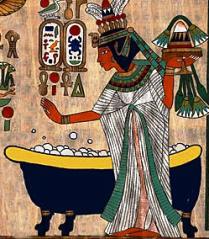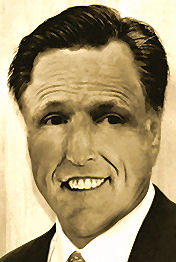You’re Getting Warmer
 Friday, May 4, 2007 at 09:17AM
Friday, May 4, 2007 at 09:17AM  Quote: “I will follow him to the gates of Hell.” Senator John McCain, referring to Osama bin Laden during the Republican presidential debate.
Quote: “I will follow him to the gates of Hell.” Senator John McCain, referring to Osama bin Laden during the Republican presidential debate.
Figure of Speech: euche (YOO-kay), the vow. From the Greek, meaning “vow.”
A bevy of ten GOP hopefuls revealed that they believe in evolution (except for a craven three who signaled they do not), and that they wouldn’t mind if the Supreme Court banned abortion.
John McCain, for his part, came locked and loaded. When asked a dumb question about immigration, McCain dealt with it briskly and then recalled a previous dumb question about how hard we should try to get bin Laden. The answer: real hard.
The euche — a vow never to say die — is a classic figure of Ethos, persuasive language that enhances your image. It makes your character seem reliable. Even relentless.
Figaro especially loves McCain’s reference to Hell, which implies a struggle between good and evil. Don’t examine examine a euche like that for logic, though. One doubts that bin Laden would find refuge anywhere near the gates of Hell, unless he mistakes Hell for Pakistan.
Snappy Answer: “Better start right now.”
For more Ethos enhancers, see page 86 of Figaro’s book.





